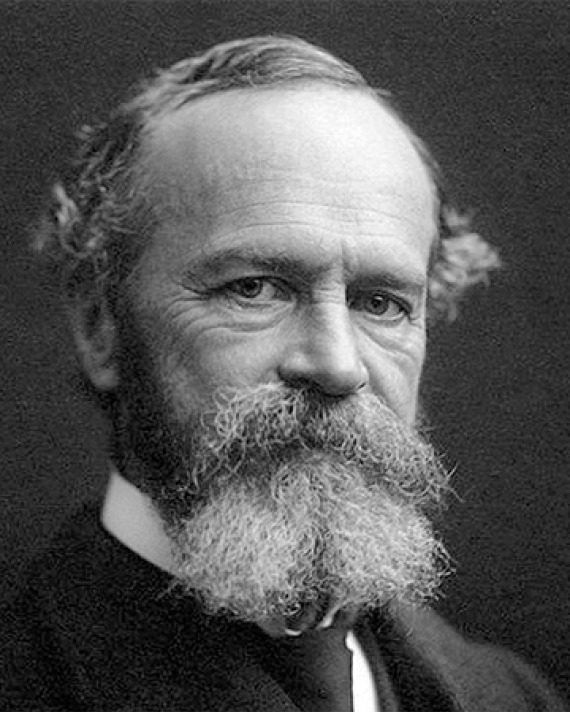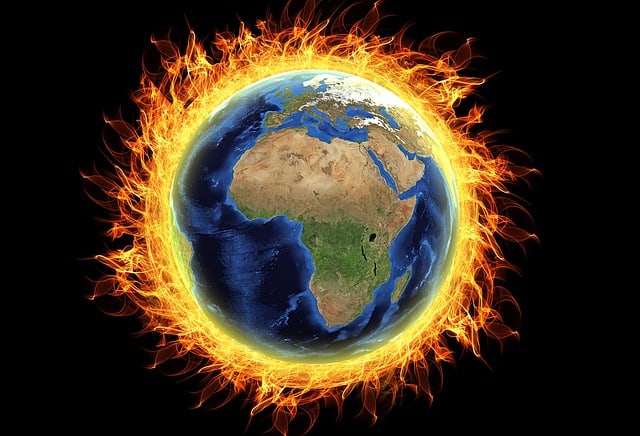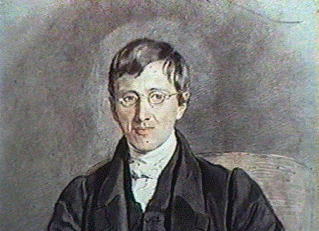The conclusion to an essay by this French philosopher. The original can be found in this collection.
What kind of judgment is then true? We call true a statement that agrees with reality. But of what does this agreement consist? Here we would like to see something akin to the resemblance of a portrait and its model: a true statement would be one that copied reality. Nevertheless, let us consider the question: we will see that only in rare and exceptional cases does this definition of the true become applicable. What is real is this or that specific fact reaching such and such a point in place and time, that is the singular and changing thing. On the contrary, most of our statements are general and imply a certain stability in their objects. Let us take a reality as close as possible to experience, something such as "heat distends bodies." Of what could this possibly be a copy?

 It is possible, in a certain sense, to copy the distension of a specific body in specific movements by photographing it in different phases. Metaphorically I could even say that the statement "this iron bar is distended" is the copy of what occurs when I observe the distension of an iron bar. But a truth that applies to all bodies without involving in particular any one of those I have seen copies and reproduces nothing. We would like nonetheless to have it copy something and philosophy has always attempted to satisfy our desires in this regard. For the philosophers of antiquity, there was beyond time and space a world where all possible truths had lain for eternity. Human statements were for them all the more truthful because they faithfully copied eternal truths. Modern thought has made truth tumble from the sky to the earth; yet even modern thinkers saw something there which antedated our statements. Truth might lie in things and facts: science would go look for it, lure it out of its hiding place, and bring it all to light. A statement such as "heat distends bodies" would then be a law which governed facts, which reigned, if not above them, then at least amongst them, a law truly contained in our experience in whose extraction we are limited. Even a philosophy like Kant's that claims all scientific truth is relative to the human mind considers true statements as givens a priori in human experience. Once this experience has been organized in general by human thought, the work of science would consist exclusively of piercing the tough carapace of facts whose truth is lodged within, like a nut in its shell.
It is possible, in a certain sense, to copy the distension of a specific body in specific movements by photographing it in different phases. Metaphorically I could even say that the statement "this iron bar is distended" is the copy of what occurs when I observe the distension of an iron bar. But a truth that applies to all bodies without involving in particular any one of those I have seen copies and reproduces nothing. We would like nonetheless to have it copy something and philosophy has always attempted to satisfy our desires in this regard. For the philosophers of antiquity, there was beyond time and space a world where all possible truths had lain for eternity. Human statements were for them all the more truthful because they faithfully copied eternal truths. Modern thought has made truth tumble from the sky to the earth; yet even modern thinkers saw something there which antedated our statements. Truth might lie in things and facts: science would go look for it, lure it out of its hiding place, and bring it all to light. A statement such as "heat distends bodies" would then be a law which governed facts, which reigned, if not above them, then at least amongst them, a law truly contained in our experience in whose extraction we are limited. Even a philosophy like Kant's that claims all scientific truth is relative to the human mind considers true statements as givens a priori in human experience. Once this experience has been organized in general by human thought, the work of science would consist exclusively of piercing the tough carapace of facts whose truth is lodged within, like a nut in its shell.
This concept of truth is natural to our minds and natural as well to philosophy because it is natural to think of truth as a perfectly coherent and systematized whole within a framework of logic. This framework would be truth itself; all science has to do is find it. But pure and simple experience tells us nothing of the sort, and James sticks to experience. Experience presents us with a flow of phenomena: if this or that statement related to one of these phenomena allows us to master those which come after or even simply to predict them, we say that this statement is true. A proposition such as "heat distends bodies," a proposition suggested by viewing the distension of a specific body, acts in such a way that we can predict how other bodies may react in the presence of heat. It helps us to move from an old experience to new ones; it is the conduit, nothing more. Reality flows and we flow with it; and we call true any statement which, in directing us across moving reality, allows us to grasp hold of it and put ourselves in the best conditions to act.
We can see the difference between this idea and the traditional view of reality. We normally define the true by the conformity that already exists; James defines it by a relationship that does not exist yet. The true, according to James, does not copy something that has been or that is, it announces what will be; rather, it prepares our action towards what is going to be. Philosophy has a natural tendency to want to examine truth retrospectively; James looks it prospectively.
To be more exact, other doctrines make truth into something antecedent to the very specific act of man who has formulated this truth for the first time. He is the first person to see this truth, we may say, but it was waiting for him like America was waiting for Christopher Columbus. Something hid it from everyone's purview and, so to speak, covered it; it was then he who discovered it. But James's concept is completely different. He does not deny that reality is independent, more or less, of what we may say or think of it. Yet truth that can only attach itself to what we state or affirm of reality would appear to him to be created by our statements or affirmations. We invent reality to make use of reality, just as we invent mechanical devices to make use of the forces of nature. It seems to me that we could summarize the essential argument of pragmatism's concept of truth in such a formula: whereas for other doctrines a new truth is a discovery, for pragmatism it is an invention.
It does not follow, however, that truth is arbitrary. A mechanical invention has no value apart from its practical utility. In the same way, to be true a statement should increase our influence on things. It is no less than the creation of a specific creative mind and it did not precede the effort of this mind any more than, for example, the phonograph preceded Edison. Doubtless the inventor of the phonograph had to study the properties of sound, which comprises a reality. Yet his invention is then added to this reality as an absolutely new thing which might never have been produced had he never existed. Thus for a reality to be viable it must have its roots in realities; but these realities are nothing more than the terrain upon which this reality grows, and other flowers would also have grown there if the wind had scattered other grains.
According to pragmatism, truth is made little by little thanks to individual contributions from a large number of inventors. Had these inventors never existed, had there been others in their stead, we would have had an entirely different body of truths. Reality has evidently remained what it is, or close to it; but there could have been other routes we might have taken for the convenience of our movements. And here we are not only talking about scientific truths. We cannot construct a sentence, we can no longer even utter a word these days without accepting certain hypotheses which were created by our ancestors and which could have been very different from what they are. When I say "my pencil just fell under the table," I am certainly not promulgating a fact of experience since what sight and touch show me is simply that my hand is open and that it let go of what it was holding. A baby strapped to his seat who sees fall the toy he is playing with probably does not conclude that this object continues to exist. Rather, he does not possess the distinct idea of an "object," that is to say, of something that subsists, invariable and independent, through the diversity and mobility of appearances that take place. The first person who decided to believe in this invariability and this independence made a hypothesis: it is this hypothesis that we currently adopt every time we use a noun, every time we speak. Our grammar would have been different, the articulations of our thinking would have been different, if humanity in the course of its evolution had preferred to adopt hypotheses of a different kind.
The structure of our mind is therefore to a great extent our own doing, or at the very least the doing of some among us. This is, in my opinion, the most important tenet of pragmatism even if it has not been explicitly released. It is in this way that pragmatism continues from Kantianism. Kant said that truth depended on the structure of the human mind. Pragmatism adds, or at the very least implies, that the structure of the human mind is the effect of the free initiative of a specific number of individual minds.
This is again not to say, however, that truth depends on each of us; one might as well believe that each one of us invented the phonograph. What it means is that, from the diverse types of truth, the one that is the closest to coinciding with its object is not scientific truth, nor the truth of common sense, nor, more generally, the truth of an intellectual order. All truth is a route traced across reality; yet of all these routes, it is among those on which we could have attained a very different direction if our attention had been oriented in a different sense or if we had aimed at another type of utility. On the contrary, it is of the sort whose direction is marked by reality itself. It is of those which correspond, if one can put it thus, to the currents or flows of reality. Doubtless these routes still depend on us to a certain extent since we are free to resist a current or to follow it. And even if we follow it, we can inflect our movements in different directions, associated at the same time as we are subject to the force present therein. It is no less true that these currents are not created by us: they form an integral part of reality. Pragmatism borders, therefore, on inverting the order in which we are accustomed to placing the diverse types of truth. Outside of truths that transmit brute sensation, it is the truths of feeling that would extend the deepest roots. Should we be comfortable in saying that all truth is an invention, I think in order to remain faithful to the thinking of William James we would have to establish between the truths of feeling and scientific truths the same type of difference as, for example, between a sailboat and a steamboat. They are both human inventions; yet the former has only a slight role in artifice; it assumes the wind's direction and makes visible to the eye the force employed. In the latter, on the other hand, it is the artificial mechanism that takes up the most space. It recovers the force that it puts to use and assigns it a direction that we have chosen ourselves.
Thus the definition that James bestows upon truth creates a body with its conception of reality. Should reality not be this economic and systematic universe which our logic likes to imagine, should it not be sustained by a framework of intellectuality, truth of an intellectual order would then be a human invention which has the effect of utilizing reality rather than introducing us into it. And if reality does not form a whole, if it is mobile and multiple, made of currents which cross, then the truth born from contact with one of these currents – truth sensed before being conceived – is more capable than truth conceived simply to seize and stockpile reality itself.
It is therefore this theory of reality that we must first attack in our criticism of pragmatism. We can raise objections against it, and as far as it is concerned, we would make some qualifications. Yet no one would contest its depth and originality. Nor would anyone, having closely examined the conception of truth attached to pragmatism, mistake its moral elevation. It has been said that James's pragmatism is nothing more than a form of skepticism that debases truth and subordinates it to material utility; that discourages and dissuades disinterested scientific research. Such an interpretation would never occur to those who were to read the work attentively, and it would profoundly surprise those who had the good fortune of knowing the man himself. No one loved truth with greater ardor; no one sought it with greater passion. He was motivated by an immense concern, and from science to science, from anatomy and physiology to psychology, from psychology to philosophy, he moved bent over all the large problems, uncaring of the rest, oblivious of himself. His whole life he observed, he experimented, he meditated. And as if he had not done enough, he also dreamed, falling into his final sleep; he dreamed of extraordinary experiences and superhuman efforts by which he could continue, until death and beyond, to work with us for the greater good of science and the greater glory of truth.
 Thursday, June 17, 2010 at 23:04
Thursday, June 17, 2010 at 23:04  It is a docu-dramatization of the work of a British scientist whose publications have gained him both notoriety and what he really wants, more attention to the warming of our planet. That the globe is but 0.8 degrees C (1.44 F) hotter than it once was would not appear to be an alarming change; much more violent fluctuations in worldwide temperature have been theorized as far back in time as scientists can delve. What is alarming, however, is the rate at which these changes have been occurring. It used to be that a degree or two of climatic vacillation would take place over thousands or millions of years, thus dissipating its potential effects on the environment (even the mighty ice ages were creeping, almost imperceptible affairs); now calculations are in decades or even calendar years. So if I were to claim that since the middle of the nineteenth century we have spurned the earth's riches in favor of synthetic, industrial greed I would not only be expressing my political opinion, I would be announcing a crisis.
It is a docu-dramatization of the work of a British scientist whose publications have gained him both notoriety and what he really wants, more attention to the warming of our planet. That the globe is but 0.8 degrees C (1.44 F) hotter than it once was would not appear to be an alarming change; much more violent fluctuations in worldwide temperature have been theorized as far back in time as scientists can delve. What is alarming, however, is the rate at which these changes have been occurring. It used to be that a degree or two of climatic vacillation would take place over thousands or millions of years, thus dissipating its potential effects on the environment (even the mighty ice ages were creeping, almost imperceptible affairs); now calculations are in decades or even calendar years. So if I were to claim that since the middle of the nineteenth century we have spurned the earth's riches in favor of synthetic, industrial greed I would not only be expressing my political opinion, I would be announcing a crisis.





